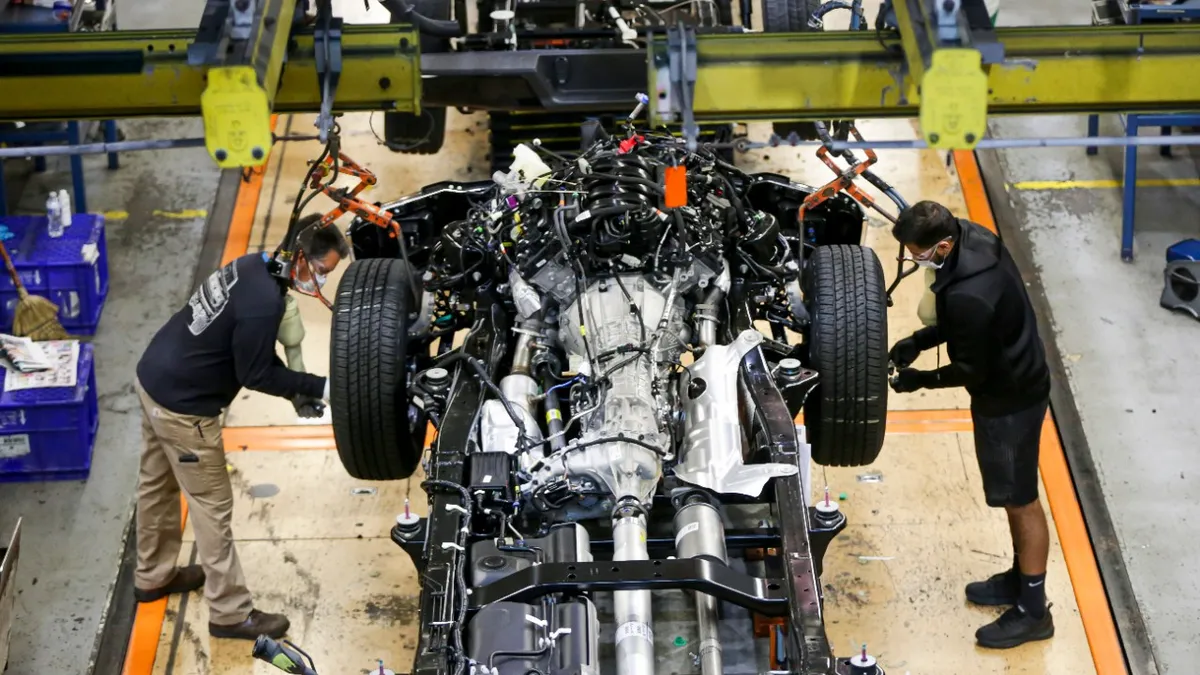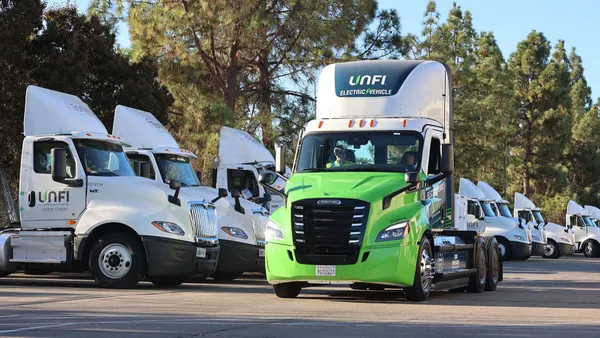Dive Brief:
- Toyota will make 330,000 fewer vehicles than expected in October, saying in an SEC filing last week it plans to slash its annual production target by 40% due to the global semiconductor shortage and a rise in COVID-19 cases in Southeast Asia.
- Coronavirus outbreaks in Malaysia and Vietnam have led to a renewed shuttering of factories, and auto executives say the disruptions have further delayed orders of computer chips and other parts, exacerbating shortages.
- It is the second month in a row Toyota cut production, and the company said in the filing it has now lowered its annual forecasted production volume by 3%.
Dive Insight:
Toyota had largely avoided shortages facing its peers until recent months, in part due to its close relationship to suppliers. But a revised production outlook shows that no automaker is spared from global supply chain disruptions.
Countries in Southeast Asia including Malaysia and Vietnam have gone into lockdown and shut factories in response to surging COVID-19 cases, delaying production and compounding a parts shortage that's disrupted the entire auto industry. Malaysia is a key hub for semiconductors, while Vietnam is a major producer of auto parts.
"The spread of COVID-19 infections remains unpredictable, making it difficult to maintain operations due to lockdowns at various locations, and we are working to transfer production to other regions," Toyota said in an SEC filing. The company relies on Vietnam for parts such as frames, chairs and wires.
Shortages have pushed other automakers including Ford and General Motors to idle plants. GM CFO Paul Jacobson said Friday during an investor conference that "inventories have been very, very thin all year," which is "primarily related to COVID in Southeast Asia." Ford COO Lisa Drake, at a separate conference last week, said supply issues have been "exacerbated by these COVID related shutdowns in Malaysia."
Both companies moved to adjust supplier relationships in the wake of shortages, and have taken steps to make their supply chains more transparent and efficient.
But those efforts may not be enough, as Toyota has shown. The world's largest carmaker said in May it expected "no impact on semiconductor supplies" thanks to its overhauled supply chain. Toyota rethought its relationship with suppliers after the destructive 2011 earthquake in Japan, creating a flexible system that allowed it to rely on different parts or components in the case of constraints.
Shortages, worsened by in Southeast Asia, have now caught up with the company. The automaker will temporarily close nine plants this month, including those responsible for the Corolla and Camry sedans, according to the SEC filing.
Toyota also said production in November and beyond remains unclear. However, the company does not plan to adjust its yearly financial outlook as current demand remains strong.















